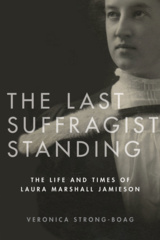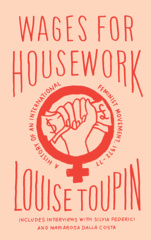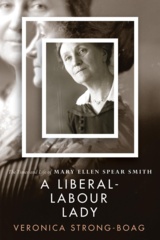
Ours by Every Law of Right and Justice
Women and the Vote in the Prairie Provinces
Many of Canada’s most famous suffragists – from Nellie McClung and Cora Hind to Emily Murphy and Henrietta Muir Edwards – lived and campaigned in the Prairie provinces, the region that led the way in granting women the right to vote and hold office. Manitoba enfranchised women in January 1916, and Saskatchewan and Alberta quickly followed in March and April.
In Ours by Every Law of Right and Justice, award-winning author Sarah Carter challenges the myth that grateful male legislators simply handed western settler women the vote in recognition that they were equal partners in the pioneering process. Suffragists worked long and hard to overcome obstacles, persuade doubters, and build allies.
But their work also had a dark side. Carter situates the suffragists’ struggle in the colonial history of the region, a period when Indigenous people were being cleared from the Plains and marginalized on reserves to make way for permanent settlers. Even as they pressured legislatures to grant their sisters the vote, settler suffragists often accepted and approved of that same right being denied to “foreigners” and to Indigenous men and women.
This powerful and passionate account of prominent suffragists and their lesser-known allies shows that the right to vote meant different things to different people – political rights and emancipation for some, domination and democracy denied for others.
This book is important reading for anyone with an interest in Canadian women’s history or the history of colonialism in Prairie Canada and on the Great Plains. It will particularly appeal to students of Canadian or political history.
Awards
- 2021, Winner - WILLA Literary Award, Scholarly Nonfiction
- 2021, Shortlisted - Stubbendieck Great Plains Distinguished Book Prize, Center for Great Plains Studies, University of Nebraska-Lincoln
- 2020, Shortlisted - Margaret McWilliams Prize in Manitoba History
Carter’s book is undoubtedly required reading not only for students of suffrage history, Prairie history and Canadian history more generally but also for scholars interested in the empirical investigation of that history.
Sarah Carter’s decades-long expertise in Prairie history ensures that the objective of viewing women’s suffrage in both the wider socio-political context and the local environmental setting are handled with aplomb.
With clarity, sensitivity and deftness, Carter shows that these activists’ accomplishments, and the oppression they furthered, were equally real… she sets a useful template for historians to examine and understand other similarly complex events and figures in Canadian history.
Outstanding research and a fluid writing style make this book an impressive, useful, and accessible history of Canadian women's fight for suffrage. Carter's portraits of the women leading the efforts bring the period to life for the reader ... It delves into complex political and sociological aspects of the movement and the unsettling biases of the movers. It includes the perspectives of Indigneous peoples, white British settlers, ethnic minorities, farm women, and the working class. An important contribution to women's studies.
With its focus on the activism that led to provincial enfranchisement, as well as the First Nations and Metis people sidelined during the fight for equality, this book is essential reading for anyone interested in the history of suffrage in Canada.
Organizing for social justice was – and remains – hard, tedious, taxing, and often thankless work. Canadian feminists are still grappling with the legacy of imperialism and colonialism that informed early twentieth-century women’s organizing. Sarah Carter’s history of the suffrage movement provides an important touchstone for activists committed to improving women’s representation today.
Introduction
1 Settler Suffragists: Context, Causes, Obstacles
2 Manitoba: A Long-Sustained and Just Agitation
3 Saskatchewan: A Spark Nearly Smothered
4 Alberta: Plain, Old-Fashioned, Unfrilled Justice
5 A New Day Coming? Essential by Incomplete Victories
Sources and Further Readings; Index












